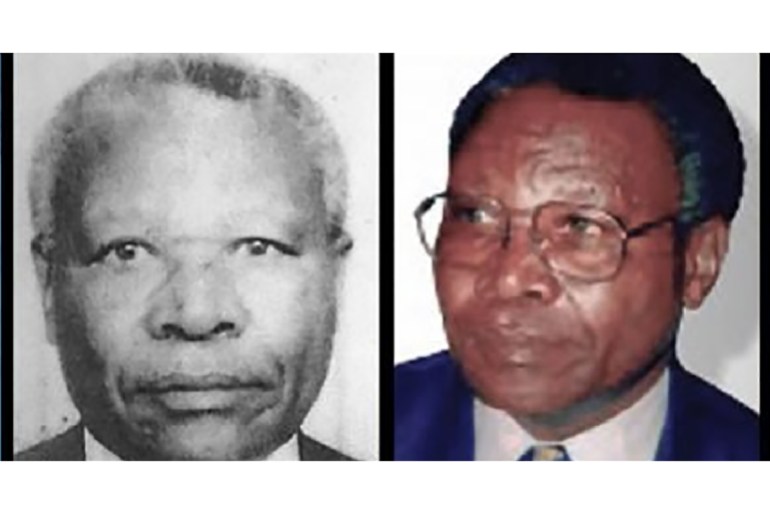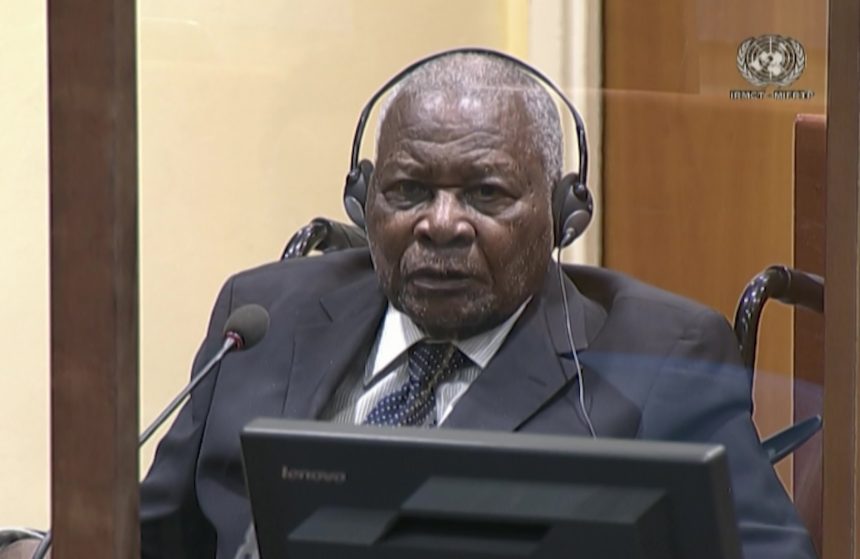[ad_1]
Judges say Felicien Kabuga, accused of fuelling the 1994 genocide, is unfit for trial or alternative procedures.
UN appeals judges have ordered the war crimes trial for 90-year-old Rwandan genocide suspect Felicien Kabuga indefinitely suspended because he has dementia, rejecting plans for an alternative slimmed-down procedure.
The decision taken on Monday likely means that Kabuga’s trial, which started last year in The Hague, will not be completed.
In June, judges at the International Residual Mechanism for Criminal Tribunals ruled Kabuga unfit to stand trial but said alternative procedures should take place. Prosecutors had argued halting the trial would be unfair to the victims and said Kabuga’s own actions put him in the position of facing trial at an advanced age with diminished capacity.
However, appeals judges said on Monday that the lower court made an “error of law” and there was no legal basis for an “alternative finding procedure” instead of a trial for Kabuga.
They had “decided to remand the matter to the trial chamber with an instruction to impose an indefinite stay of proceedings in view of Mr Kabuga’s lack of fitness to stand trial.”
“The appeals chamber further instructed the trial chamber to expeditiously consider the issue of Mr Kabuga’s detention on remand,” the judges said in their ruling.
The decision “must be disappointing” to victims and survivors of the 1994 slaughter who have “waited long to see justice delivered”, the appeals judges acknowledged.
But they said: “Justice can be delivered only by holding trials that are fair and conducted with full respect for the rights of the accused.”
The judges also ordered a lower trial chamber to rapidly evaluate under what circumstances Kabuga could be released.

‘Broadcasting genocidal propaganda’
The former businessman, who made his fortune in the tea trade, is one of the last suspects sought by the tribunal prosecuting crimes committed in the 1994 genocide when members of the country’s Hutu majority killed more than 800,000 minority Tutsis and Hutu moderates in 100 days.
He is accused of financing Hutu militias as well as encouraging hate speech to be broadcast on his radio station, Radio Television Libre des Milles Collines (RTLM).
After years as a fugitive from international justice, Kabuga, who had a $5m bounty on his head, was arrested near Paris in May 2020. He was transferred to The Hague to stand trial at the residual mechanism, a court that deals with remaining cases from the now-closed UN tribunals for Rwanda and the Balkan wars.
He pleaded not guilty to charges of genocide, incitement to commit genocide, conspiracy to commit genocide as well as persecution, extermination and murder.
In September, UN prosecutor Rashid Rashid said in his opening statement that Kabuga did not need to pick up a microphone himself to call for the killing of Tutsis but founded a radio station that “broadcast genocidal propaganda across Rwanda”.
Prosecutors said the genocide charges covered rapes, sexual assaults and killings. Hutus were encouraged in RTLM broadcasts to “taste” Tutsi women, they said.
He was also accused of supplying Hutu death squads with machetes. Kabuga had denied these charges.
Sixty-two Rwandan genocide suspects have been convicted by the tribunal so far.
[ad_2]
Source link









